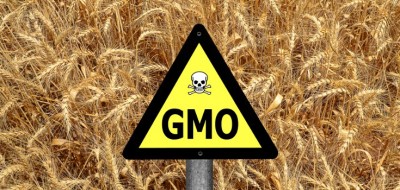When it Comes to GMOs We Don’t Trust BBC ‘Experts’, Public Survey Reveals

How adequately and respectfully are public concerns about genetic modification in food and farming represented by the BBC?
A recent BBC Panorama programme, entitled GM Food – Cultivating Fear, suggested that opposition to GMOs is “morally unacceptable” and that those who oppose GMOs are prone to “making things up” instead of relying on facts and sound science.
It further suggested that the concerns and values of those who oppose agricultural GMOs are so fluid and insubstantial that they would abandon them if GM food could be priced cheaply enough.
In the days following the programme there was considerable criticism about its narrative and the way that it framed the issues in support of a particular and partial point of view.
Giving the public a voice
The public can, of course, complain to the BBC about programmes which it finds offensive or unbalanced, but such complaints can be – and many argue, often are – easily ignored.
One of the goals of Beyond GM is to help raise awareness that genetic modification (GM) in food and farming is not simply a science issue.
In our view much of the polarisation in the GMO debate is due to this kind of reductionist framing. We also want to bring the wider public back into the GMO debate and seek to ensure that people who have concerns or questions on the subject of genetic engineering in food and farming are given ample space to express them and that those views are respected.
For these reasons, in the wake of the Panorama programme we endeavoured to provide a space, however limited, for broader public comment by undertaking a survey and gathering comments which explore the views of an informed public about the way its views, and the issues around GMOs, were represented by this programme and by the BBC in general.
Lack of trust in the BBC
As the BBC faces an uncertain financial future, our survey reveals that nearly 70% of the public do not trust the independence of experts featured on BBC programmes. The open survey, which looks into the impartiality of the BBC when it comes to the reporting of genetically modified food and farming, collated results from 1000 people. 667 of these said they did not trust the independence of the experts featured on programmes such as Panorama, Countryfile and Radio Four’s Today programme.
The survey comes in the wake of the Panorama programme, GM Food – Cultivating Fear which was broadcast on June 8th and claimed to explore a new generation of GM crops. However, the programme, presented by Countryfile reporter Tom Heap, pursued a pro-GM agenda and featured three “experts” who have commercial associations with GM technology. For example:
- Professor Jonathan Jones from the Sainsbury Laboratory owns several GM patents. He is the co-founder of several Biotech companies and owns a company established to commercialise GM crops.
- Anne Glover co-founded a biotech company before promoting GM technology in her recent role as chief scientific advisor to the EU President
- Mark Lynas, a pro-GM advocate, is employed as part of the Cornell University’s programme to promote GMOs globally.
Nearly 90% of the people surveyed felt that academics, researchers and other independent experts featured on BBC programmes should reveal their sources of income, corporate affiliations and whether or not they are patent holders to the public before being interviewed on BBC programmes. Nearly three quarters of the respondents felt the BBC programming represented a pro-GM stance. As one respondent wrote:
“BBC News reports are very superficial and don’t even attempt to independently investigate the downsides of GM, such as: potential health issues, increased use of pesticides, contamination of conventional/organic crops, pesticide resistance, whether advertised yields are achieved.”
Bias a continuing problem
This morning’s Radio 4 Today programme (8th July) provided further evidence of a pro-GM bias. In two slots, uncritical coverage of GM crops was presented. Two pro-GM researchers – Professor Johnathan Napier of Rothamsted Research, and Professor Joyce Tait of the Innogen Institute – were given the opportunity to talk, without challenge, about the results of the initial trials of GM camelina, a GM crop which can produce Omega 3 fish oils, and its potential use in the food system.
Director of Beyond GM, Lawrence Woodward says:
“Interviewer, Justin Webb, did not ask a single critical question and Tait in particular was allowed to make factually incorrect and misleading claims about GM and opposition to it”.
The BBC’s support for GM technology is at odds with recent public surveys, detailed in the report which show that the majority of the UK public do not want GM crops grown in the UK.
A warning shot
Pat Thomas, Director of Beyond GM, and lead author of the survey report says:
“As a journalist myself, I find the results of our survey concerning. In the GMO debate, the distance between what the media wants to report and what the public wants to know, and indeed needs to know, is becoming ever wider. The 2014 Science and Technology Committee report emphasised the need for broadcasters to review their own content on genetic modification and challenge whether they were getting the perspective and balance right across the broad context of other agricultural issues, of food production and food security. This is a warning shot from an informed public and calls into question whether the BBC is fulfilling its own remit as a public service broadcaster.”
- Download a .pdf copy of the report Does the BBC help cultivate a pro-GMO agenda in the UK? here.

